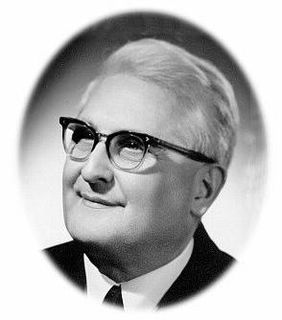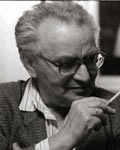 W
WJános Apáczai Csere was a Transylvanian Hungarian polyglot, pedagogist, philosopher and theologian, famous for his work The Hungarian Encyclopedia, the first textbook to be written in Hungarian. The Encyclopædia Britannica calls him "the leading Protestant scholar and writer" of 17th-century Hungary.
 W
WValéria Dienes was a Hungarian philosopher, dancer, dance instructor, choreographer and one of first Hungarian woman to graduate from university. She is widely considered to be one of the most important Hungarian theorists on movement. She was the recipient of Hungary's highest literary award, the Baumgarten Prize in 1934.
 W
WGéza Fodor was a Hungarian art and literary critic, philosopher, and dramaturge. He was one of the founding members of the Katona József Theater in Budapest. He worked at the Institute of Philosophy of the Hungarian Academy of Sciences between 1967 and 1973 and at the Eötvös Loránd University thereafter.
 W
WElemér Hankiss was a Hungarian sociologist. His first wife was MEP Ágnes Hankiss.
 W
WLászló Kalmár was a Hungarian mathematician and Professor at the University of Szeged. Kalmár is considered the founder of mathematical logic and theoretical computer science in Hungary.
 W
WJános Kis is a Hungarian philosopher and political scientist, who served as the inaugural leader of the liberal Alliance of Free Democrats (SZDSZ) from 1990 to 1991. He is considered to be the first Leader Hungarian parliamentary opposition.
 W
WGyula Kornis was a Hungarian Piarist, philosopher, educator, professor and politician, who served as Speaker of the House of Representatives for a short time in 1938.
 W
WImre Lakatos was a Hungarian philosopher of mathematics and science, known for his thesis of the fallibility of mathematics and its 'methodology of proofs and refutations' in its pre-axiomatic stages of development, and also for introducing the concept of the 'research programme' in his methodology of scientific research programmes.
 W
WErvin László is a Hungarian philosopher of science, systems theorist, integral theorist, originally a classical pianist. He is an advocate of the theory of quantum consciousness.
 W
WGyörgy Lukács, also Georg Bernard Baron Lukács von Szegedin, was a Hungarian Marxist philosopher, aesthetician, literary historian, and critic. He was one of the founders of Western Marxism, an interpretive tradition that departed from the Marxist ideological orthodoxy of the Soviet Union. He developed the theory of reification, and contributed to Marxist theory with developments of Karl Marx's theory of class consciousness. He was also a philosopher of Leninism. He ideologically developed and organised Lenin's pragmatic revolutionary practices into the formal philosophy of vanguard-party revolution.
 W
WGyörgy Márkus was a Hungarian philosopher, belonging to the small circle of critical theorists closely associated with György Lukács, usually referred to as the "Budapest School".
 W
WÁkos Pauler was a Hungarian philosopher.
 W
WPéter Pázmány, S.J., was a Hungarian Jesuit who was a noted philosopher, theologian, cardinal, pulpit orator and statesman. He was an important figure in the Counter-Reformation in Royal Hungary.
 W
WMichael Polanyi was a Hungarian-British polymath, who made important theoretical contributions to physical chemistry, economics, and philosophy. He argued that positivism supplies a false account of knowing, which if taken seriously undermines humanity's highest achievements.
 W
WThe Comte de Saint Germain was a European adventurer, with an interest in science, alchemy and the arts. He achieved prominence in European high society of the mid 1700s. Prince Charles of Hesse-Kassel considered him to be "one of the greatest philosophers who ever lived". St. Germain used a variety of names and titles, an accepted practice amongst royalty and nobility at the time. These include the Marquis de Montferrat, Comte Bellamarre, Chevalier Schoening, Count Weldon, Comte Soltikoff, Graf Tzarogy and Prinz Ragoczy. In order to deflect inquiries as to his origins, he would make far-fetched claims, such as being 500 years old, leading Voltaire to sarcastically dub him "The Wonderman" and that "He is a man who does not die, and who knows everything".
 W
WLajos Szabó was a Hungarian philosopher and one of the founders of the Budapest Dialogical School.
 W
WEdmond Bordeaux Szekely was a Hungarian philologist/linguist, philosopher, psychologist and natural living enthusiast. Szekely authored The Essene Gospel of Peace, which he translated from an ancient text he supposedly discovered in the 1920s. Scholars consider the text a forgery.
 W
WPál Szende was a Hungarian politician, who served as Minister of Finance between 1918 and 1919. From 1904 he worked as a lawyer. He participated in the radical political movement along with Oszkár Jászi. After the establishment of the Hungarian Soviet Republic he lived in Vienna. Szende took part in the Austrian Civil War after that he escaped to Czechoslovakia then Romania, where he died. Pál Szende is buried in the city of Seini, Romania.
 W
WGáspár Miklós Tamás, often referred to in the media as TGM, is a Hungarian marxist-anarcho-syndicalist philosopher and public intellectual. He is currently a contributor to online newspaper Mérce and to OpenDemocracy, where he writes primarily about political and aesthetic questions.
 W
WMihály András Vajda is a Hungarian leftist intellectual who took part in the debates surrounding the development of national socialism, Marxism–Leninism, and the state of capitalism in the latter half of the 20th century. Involved in politics in his home country of Hungary, Vajda was expelled along with several other scholars from the Hungarian Socialist Workers Party in 1973 due to allegedly representing views that were "opposed to Marxism–Leninism and to the policy of the Hungarian Socialist Workers' Party." Vajda was one of the original members of Georg Lukács's "Budapest School", Hungarian theorists who began as neo-Marxists but moved on to what they called post-Marxist and also post-modern perspectives. Writing primarily in Hungarian, but with many works translated into English, Vajda's works treat such themes as the past and future of state socialism in Europe and fascism as a mass phenomenon. Vajda continues to draw, like other members of the original Budapest School, from a Marxist legacy in seeking to examine the state of contemporary liberal society. Recently, he has been involved in a controversy concerning critical remarks made respecting the Hungarian government, and specifically government policies that challenged free media. In a notable show of support for Vajda and his colleague fellow Hungarian theorist Ágnes Heller, Jürgen Habermas and Julian Nida-Rümelin wrote a public appeal in defense of Vajda and Heller, insisting that "We are concerned about the political and professional fate of our Hungarian colleagues... Under the nationalist government, which has used its two-thirds majority to erode the Hungarian constitution, they are again exposed to political persecution."